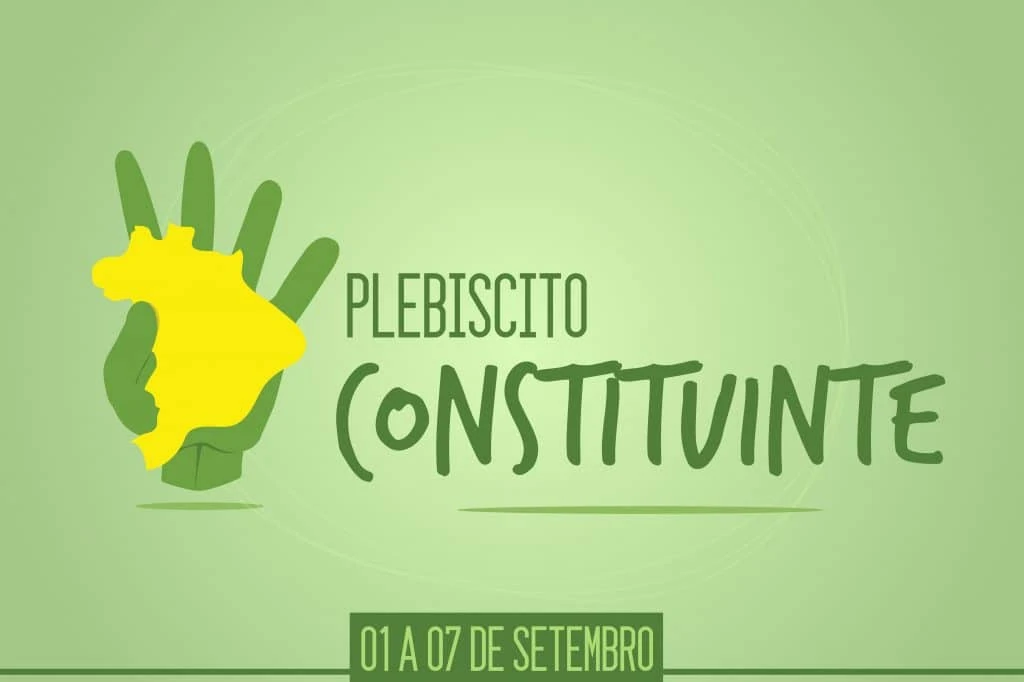The World Cup celebrations are over, the lights are off and the country is again facing the same problems as before the World Cup. Now, in the Brazilian election campaign, the population is back with a huge vote. In a broad-based referendum, almost 7.5 million people voted for fundamental political reforms. Our partner organisation Sabia was also present.
The large demonstrations in June 2013 throughout Brazil made the population's disenchantment with politics visible internationally. The reason for the discontent lies in the unequal distribution of Brazil's great wealth and the unrepresentative political representation of the population. The call for political reforms was given a clear emphasis in September this year: According to the initiators of the non-binding referendum ("plebiscito constituinte"), 7.7 million people cast their votes. Of these, 97 percent were in favour of fundamental political reforms. The petition is to be presented to the National Assembly in Brasilia in mid-October 2014.
Almost 500 Brazilian organizations involved
The broad alliance of about 500 civil society organisations (a total of 2000 committees) was able to mobilise thousands of activists for the survey, who cast 40,000 ballot boxes nationwide. Our partner organisations (e.g. Sabia) also took part in the organisation of this referendum: they informed and sensitised the population and collected votes in specially erected urns. In the referendum, the Alliance called for a reform of the political system to improve the representation of the Brazilian population. The concrete demand is that an independent grouping elected solely for this purpose should draw up constitutional reforms on this issue.
Timing not random
Although the massive demonstrations were held over a year ago, the timing of this referendum was deliberately chosen. There is an election campaign going on right now. At EUR 24 billion, this election campaign is expected to be the most expensive in Brazilian history. For comparison: With 24 billion euros, the social program "bolsa familia" could be paid out for six years to its current 50 million recipients.
Land of inequalities
Brazil is one of the countries with the greatest differences in the distribution of wealth worldwide. Thus the composition of the National Congress also reflects this exclusion of the great mass of the Brazilian population: over 70 percent of the seats are occupied by large landowners, large farmers and entrepreneurs. Nine percent are women and 8.5 percent are black members of parliament, although 51 percent of the population call themselves black. Last but not least, young people between the ages of 18 and 35 are insufficiently represented: Although they make up 40 percent of the electorate, only three percent of the seats in Congress are occupied by this age group. (Source: Website of the Committee)


